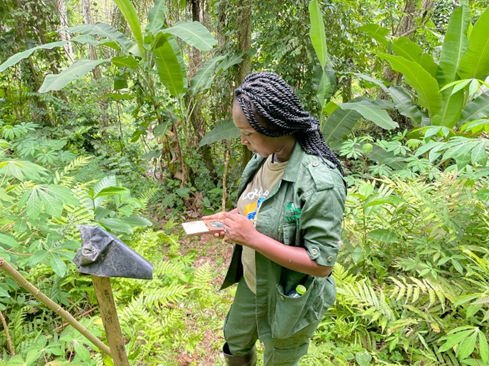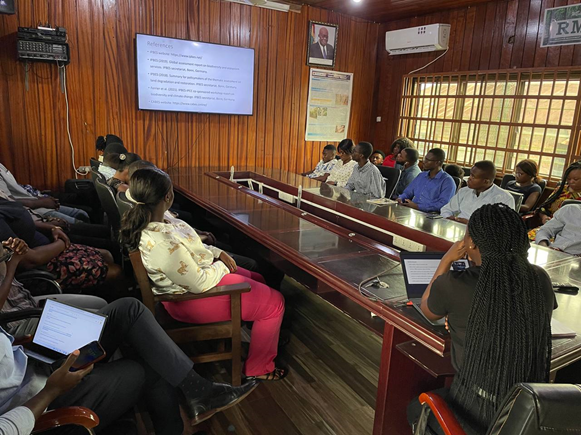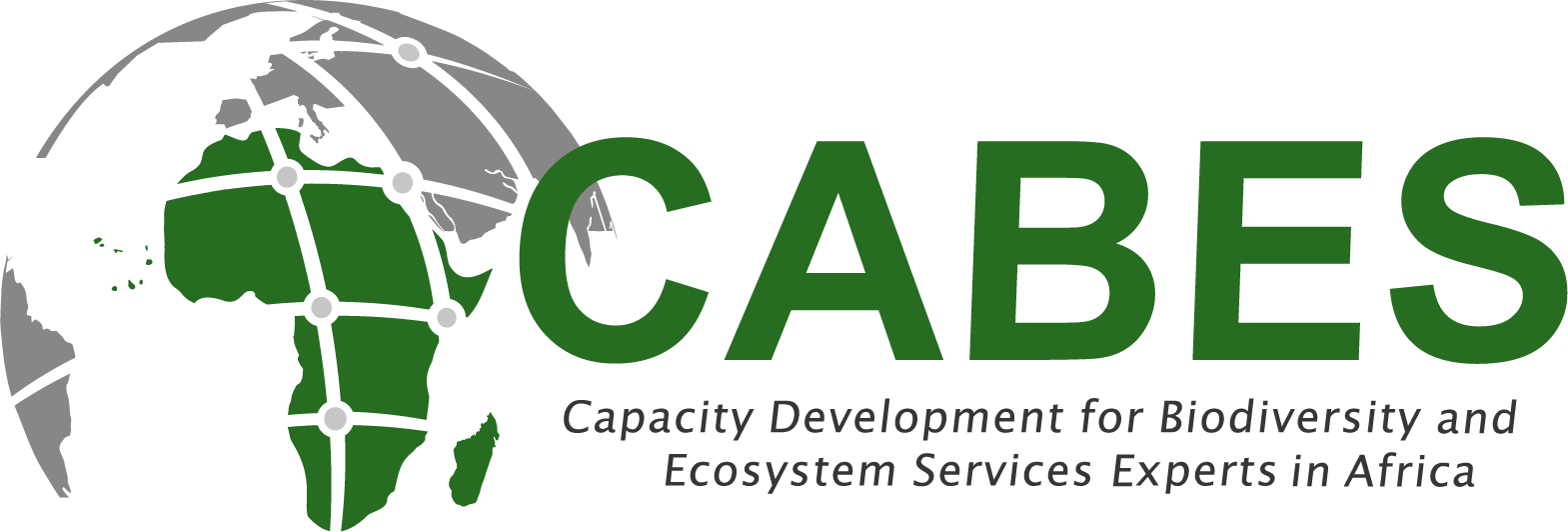Exciting Internship Experience at the Ghana's Forestry Commission! by Angelina Serwaa
The internship program within the SPIBES MSc. program aims to bridge the gap between theory and practice, allowing students to update their knowledge through real-world case studies. Excitedly participating in this SPIBES internship, I discovered a remarkable opportunity to apply my theoretical knowledge in biodiversity and ecosystem services to real-life scenarios. I was interned at the Resource Management Support Centre (RMSC) of the Ghana Forestry Commission, and below is a glimpse into the unforgettable moments, invaluable lessons from this enriching experience and the highlights of this transformative journey.
The Forestry Commission of Ghana has the vital responsibility of regulating and preserving the country’s valuable forest and wildlife resources. As the technical wing of the Commission, the RMSC provided me with hands-on experience and practical knowledge of forest landscape management. One of the most memorable experiences was our field trip to the Atewa Forest Reserve, a Globally Significant Biodiversity Area (GSBA). We assessed the progress of enrichment planting sites; contributing to the restoration of degraded forests and enhancing species diversity. Witnessing nature’s resilience firsthand was awe-inspiring!
We had the opportunity to monitor the growth parameters of planted species, particularly the endangered IUCN Red List species Cola boxina, which is endemic to Ghana. This experience reminded me of the urgency of our conservation efforts and the importance of protecting these precious species.

Figure 1: Ms. Angelina measuring the canopy cover using densometer. Photo Credit: Enoch Tenkorang
To raise awareness and foster engagement in biodiversity-related fields, I organized a workshop to introduce the CABES program to the staff of RMSC and other stakeholders. Participants from diverse educational backgrounds engaged in discussions on the CABES program objectives, qualification requirements, application processes, and career opportunities. The collective passion for biodiversity conservation in that room was truly inspiring!
The internship program was also an excellent opportunity to network and identify potential academic supervisors to foster collaboration towards my final thesis work.
I had the privilege of interacting with experts in biodiversity, ecosystem Services, forest conservation, and GIS. Their support and guidance will be instrumental in shaping my master’s research thesis. Together, we are working towards finding sustainable solutions for a better future.
I am excited to contribute to the conservation of biodiversity and ecosystem services, and to make a positive impact in the field of conservation. Join me on this transdisciplinary journey!
@CABES_iki #Biodiversity #EcosystemServices

Figure 2: Sitting at the far right in a black top, is CABES scholar, Ms. Serwaa, introducing the CABES program to the Staff of the RMSC at the Ghana Forestry Commission. Photo Credit: Enoch Tenkorang
